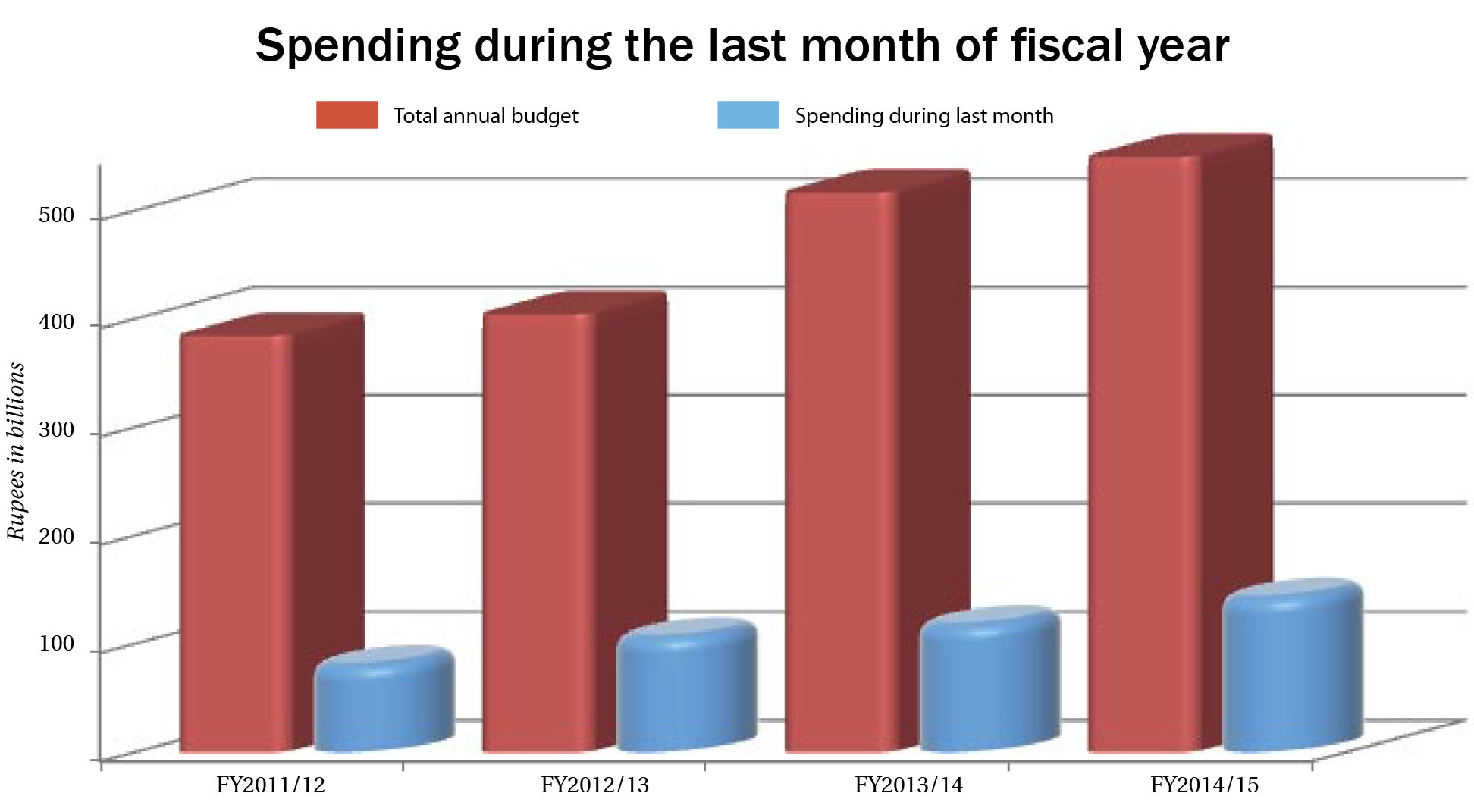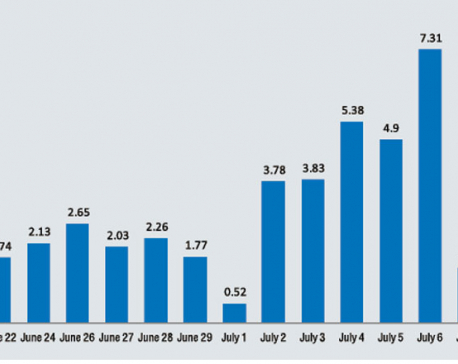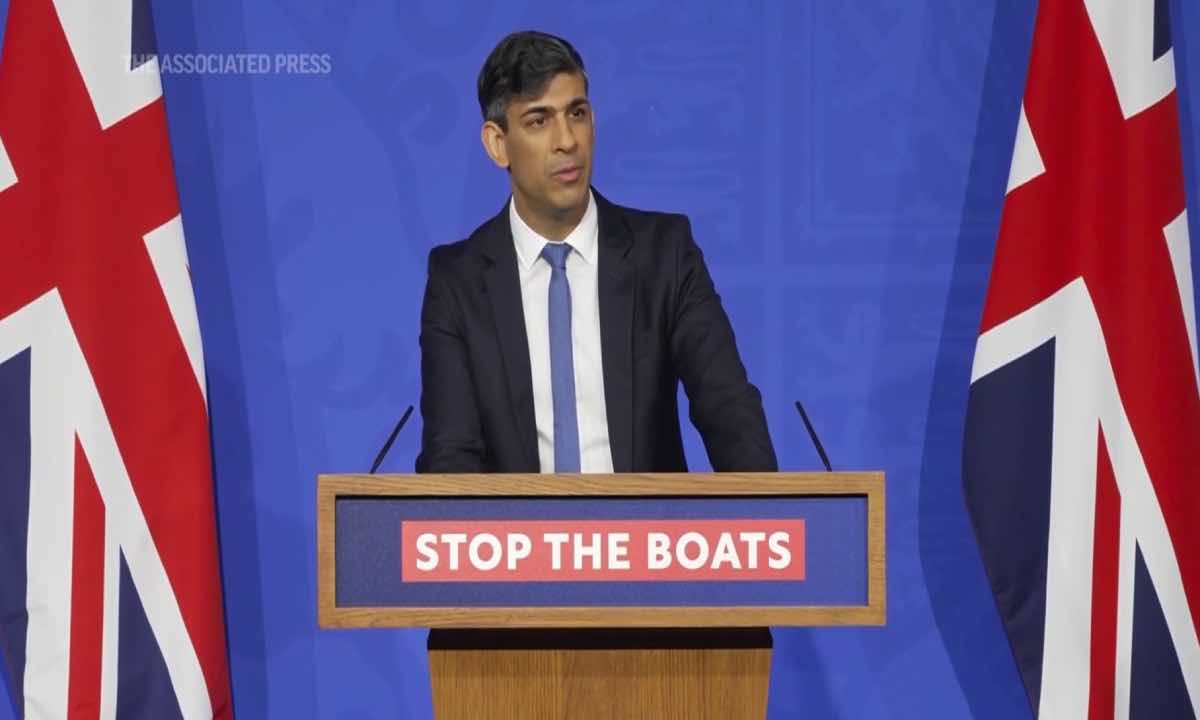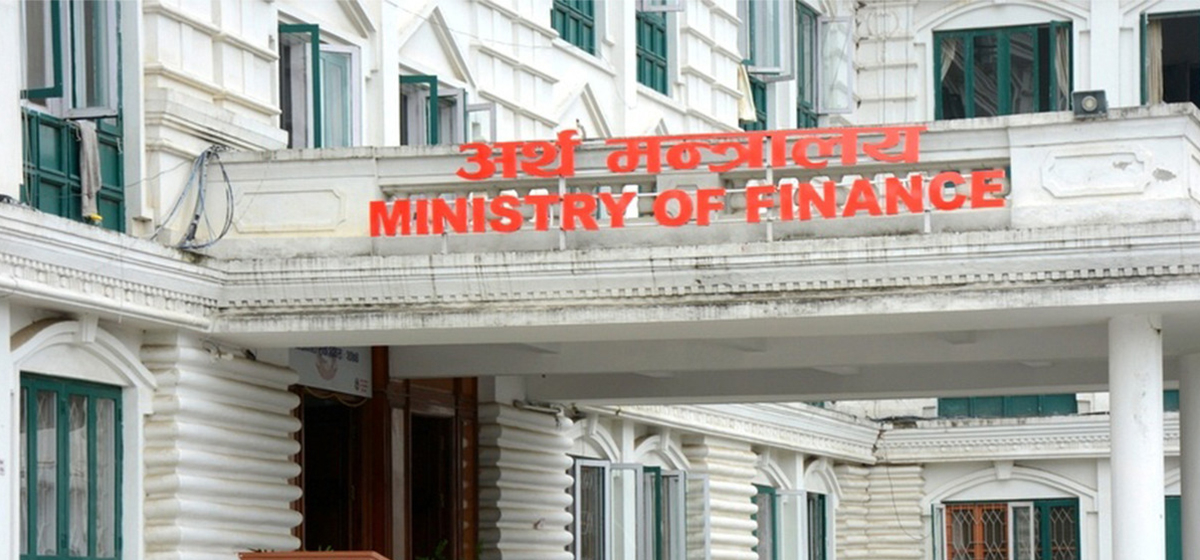
OR
11th hour: Govt on spending spree as FY end nears
Published On: June 27, 2016 01:05 PM NPT By: Kuvera Chalise | @@kchalise

About a quarter of total budget is spent in the 12th month: FCGO
KATHMANDU, June 27: Government expenditure, which was sluggish till the 11th month of the fiscal year, is gaining momentum in the final month of the fiscal year.
The last month of the fiscal year -- from mid-June to mid-July -- generally sees spending of more than a quarter of the total annual budget, figures compiled by the Financial Comptroller General’s Office shows.
The trend has not only encouraged financial indiscipline but also exposed lack of accountability and gross violation of basic fundamentals of public financial management, let alone the quality of last minute expenditure.
“Last minute spending is a financial crime,” says former senior advisor to the Ministry of Finance Keshav Acharya.
In Fiscal Year 2010/11, the Ministry Finance had issued a directive to line ministries advising them not to spend more than 40 percent of the total budget in the last three months, from mid-April to mid-July, Acharya reminded, adding that the ministry had also asked all the government agencies not to spend more than 20 percent in the 12th month of the fiscal year.
“However, the government has failed to implement this rule.”
According to former Auditor General Bhanu Prasad Acharya, last minute spending is not only financial indiscipline but also misuse of public purse. “We cannot be assured on quality of last minute spending as it is intended to ‘just spend’ the budget,” he added.
Successive governments have been spending almost a quarter of the total budget in the last month of the fiscal year, according to the Financial Comptroller General’s Office (FCGO).
In 2014/15, the government had spent a total of Rs 142.5 billion in the 12th month of the fiscal year, whereas the total annual budget for the last fiscal year was Rs 618 billion. A fiscal year earlier, the government spent Rs 117.16 billion out of the total budget of Rs 517.24 billion.
The government had managed to spend only half of the total budget by the end of the 11 months of the current fiscal year.
“As of June 25, the government has been able to spend only 53.94 percent (Rs 442.01 billion) of the total budget of Rs 819.46 billion for the current fiscal year,” the FCGO data revealed, adding that the government has been able to spent 62.25 percent (Rs 301.42 billion) in recurrent expenditure, and 31.24 percent (Rs 65.25 billion) in capital expenditures.
The government had allocated Rs 484.26 billion for recurrent expenditure, whereas Rs 208.9 billion was allocated for capital expenditure in 2015/16.
Though the low level of capital expenditure is attributed to budgeting system as it incorporates half-baked projects and projects of political interest often not implementable, the government has been not able to spend the recurrent expenditure too.
However, finance ministry officials say that the trend of last-minute spending will continue this fiscal year as well and the remaining 20 days will see surge in overall budget spending.
Former finance secretary Rameshwor Khanal attributes last minute expenditures to some valid technical reasons but more to the systemic and governance problem.
Generally, a contractor will prepare bill after 28 days of the completion of the work, he said, adding that the engineers will then verify and evaluate the work, and the contractor will make claim for payment in another 28 days.
However, the paying authority will start bargaining before making payment and keeps the payment pending till they get their cut, Khanal added.
“At the end of the fiscal year, either one has to give the cut to get paid or the budget will be frozen.”
The current government record system cannot show when the work has been completed, he said.
“Thus, the bill paid at the last minute could be the payment of the work completed in January or June,” he said, adding that the paying authority takes the advantage of the lack of tracking system and bargains for the cut.
Paying agencies like the Ministry of Physical Infrastructure and Transportation and Ministry of Energy has the culture of making payment in the last hour, pushing last month’s spending figures up.
Development partners also send the record of the projects completed through their direct payment at the last month of the fiscal year.
Likewise, the government schedules the debt payment in the last month of the fiscal year also pushing the spending up in the last month.
However, Khanal attributed the last hour surge in budget spending to the lack of governance, financial indiscipline, eroding capacity of bureaucracy and lack of political will.
You May Like This

Rs 47 billion in recurrent budget spent in 10 days as FY nears end
KATHMANDU, July 13: Most government offices across the country are found to be engaging in massive irregularities in recurrent expenditure... Read More...

Federal Alliance to end support to govt if polls not withdrawn
The Federal Alliance has decided to withdraw its support to the government unless the announcement of the local level polls... Read More...









Just In
- PPMO blacklists 33 construction companies
- UK Parliament approves Rwanda deportation bill, ending weeks of legislative stalemate
- SC refuses to issue interim order in petition against Sudurpaschim province govt
- Kathmandu to host UNDP Asia Pacific regional meeting
- DoHM cautions of heat wave in West Terai and Madhesh regions for next five days
- Is former President Bhandari returning to active politics or poised for a graceful exit?
- 18th Democracy Day being celebrated today
- One killed, four others of same family injured in tractor accident









Leave A Comment